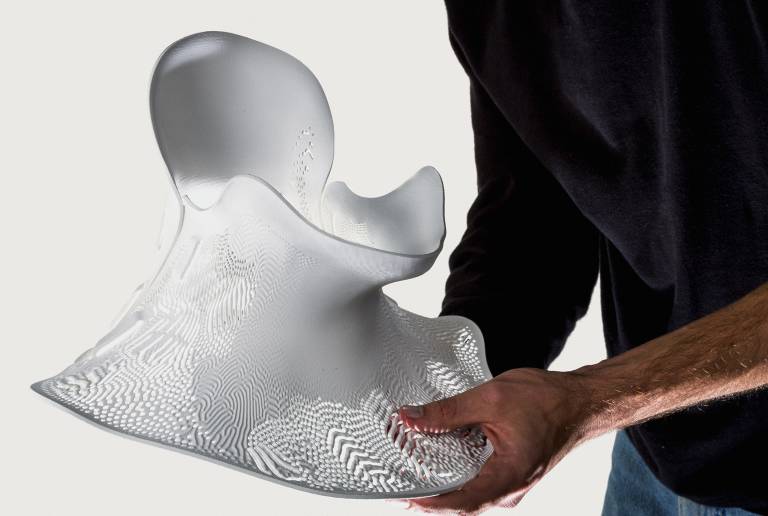Nature’s algorithms create transformative, 3D-printed neck collar
Personalised support braces inspired by the body’s natural bone and tissue structure have been designed by UCL researchers using 3D printing technology.

13 July 2021
This innovative process which can be done in just one hospital visit. Conventional methods typically take six weeks.
Many individuals with neurological disorders such as motor neurone disease, spinal cord injury, cerebral palsy or strokes wear medical braces, known as orthoses, to offer support to a weakened body part or joint.
The new technique combines 3D-scanning and 3D-printing (both types of computer-aided-design or CAD) to create a unique design which conforms to the body, and is strong and porous, similar to bone.
They demonstrate the process on a woman with a neurological disorder who was unable to hold up her head, severely impacting her quality of life, and in whom all other methods to construct a neck support had failed. Using the new design workflow, a personalised neck collar was made for her to wear for up to four hours every day, with significant improvements to her posture, comfort and breathing.
The research was led by Dr Luke Hale and Dr Deepak Kalaskar (UCL Surgery and Interventional Science) in collaboration with Royal National Orthopeadic Hospital.
 Close
Close

